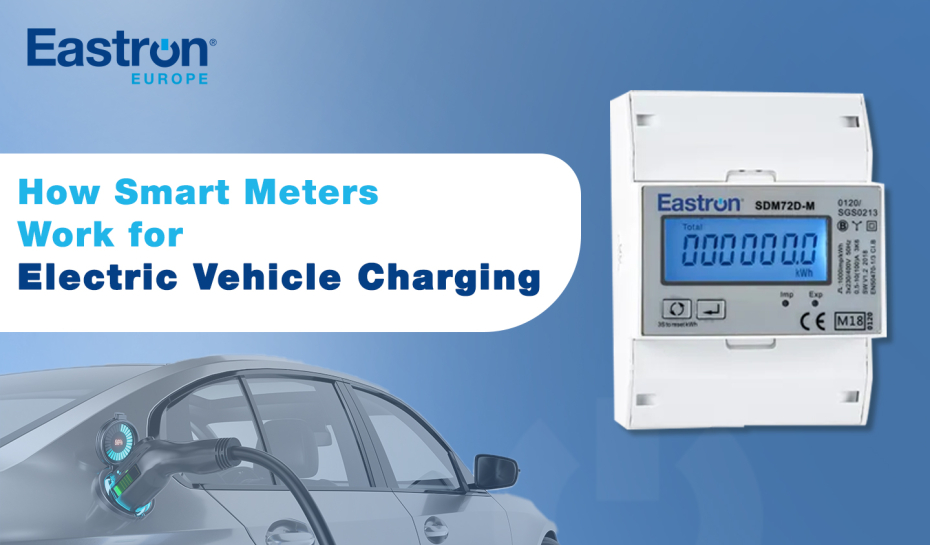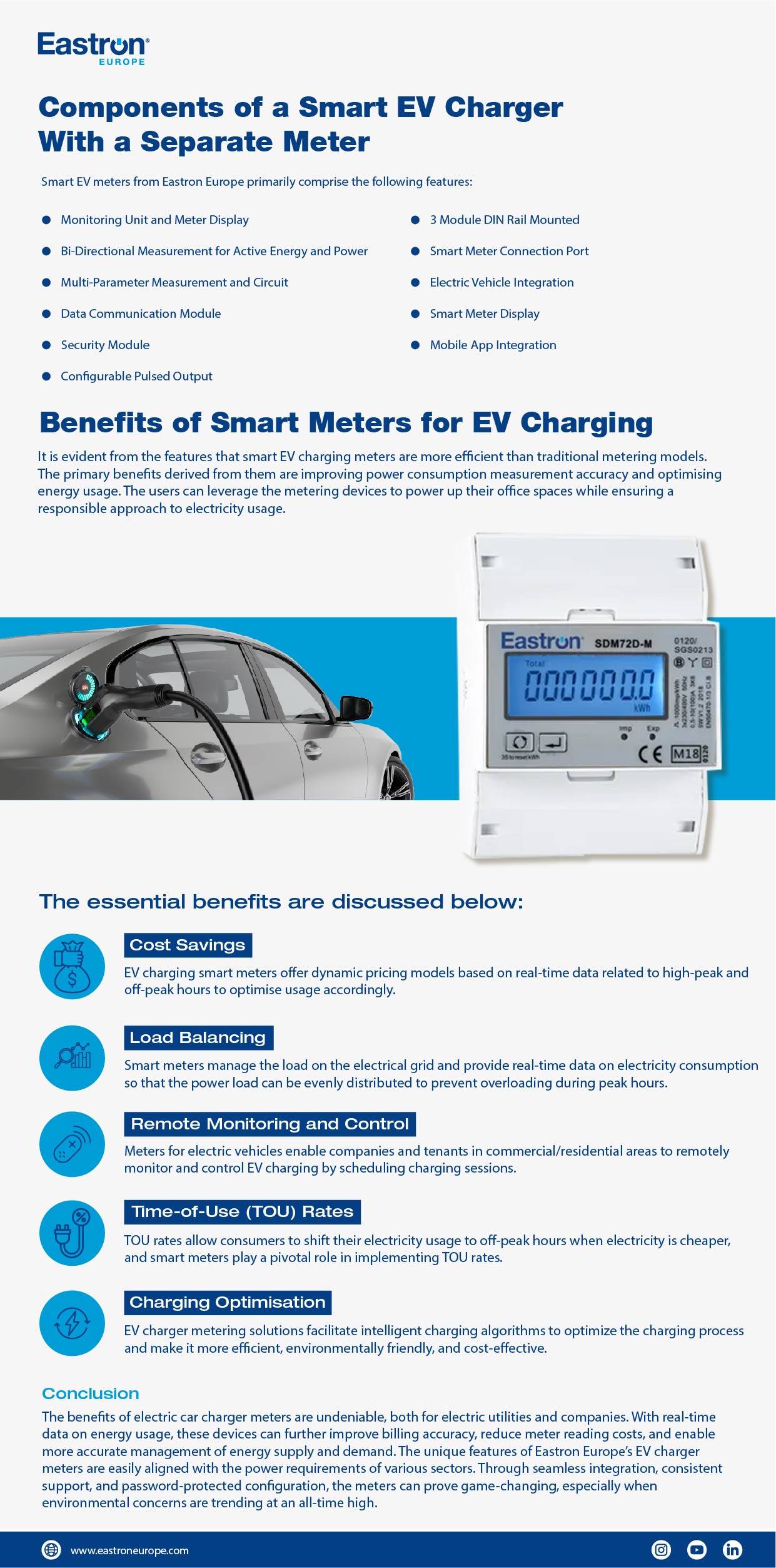
How Smart Meters Work for Electric Vehicle Charging
In the precinct of sustainable energy usage, EV charger meters play a pivotal role, enabling businesses, residential segments, and other commercial spaces to track their consumption levels accurately. Through wireless monitoring and data sharing capabilities, these intelligent meters allow data to be captured and monitored in real-time, showing various usage patterns and anomalies, if any. Such information helps users to adopt responsible strategies to curb their electricity consumption and reduce their carbon footprint to protect the environment.

Components of a Smart EV Charger With a Separate Meter
Smart EV meters from Eastron Europe primarily comprise the following features:
- Monitoring Unit and Meter Display
- Bi-Directional Measurement for Active Energy and Power
- Multi-Parameter Measurement and Circuit
- Data Communication Module
- Security Module
- Configurable Pulsed Output
- 3 Module DIN Rail Mounted
- Smart Meter Connection Port
- Electric Vehicle Integration
- Smart Meter Display
- Mobile App Integration
Benefits of Smart Meters for EV Charging
It is evident from the features that smart EV charging meters are more efficient than traditional metering models. The primary benefits derived from them are improving power consumption measurement accuracy and optimizing energy usage. The users can leverage the metering devices to power up their office spaces while ensuring a responsible approach to electricity usage.
The essential benefits are discussed below:
Cost Savings: EV charging smart meters offer dynamic pricing models based on real-time data related to high-peak and off-peak hours to optimize usage accordingly.
Load Balancing: Smart meters manage the load on the electrical grid and provide real-time data on electricity consumption so that the power load can be evenly distributed to prevent overloading during peak hours.
Remote Monitoring and Control: Meters for electric vehicles enable companies and tenants in commercial/residential areas to remotely monitor and control EV charging by scheduling charging sessions.
Time-of-Use (TOU) Rates: TOU rates allow consumers to shift their electricity usage to off-peak hours when electricity is cheaper, and smart meters play a pivotal role in implementing TOU rates.
Charging Optimization: EV charger metering solutions facilitate intelligent charging algorithms to optimize the charging process and make it more efficient, environmentally friendly, and cost-effective.
The benefits of electric car charger meters are undeniable, both for electric utilities and companies. With real-time data on energy usage, these devices can further improve billing accuracy, reduce meter reading costs, and enable more accurate management of energy supply and demand. The unique features of Eastron Europe’s EV charger meters are easily aligned with the power requirements of various sectors. Through seamless integration, consistent support, and password-protected configuration, the meters can prove game-changing, especially when environmental concerns are trending at an all-time high.
